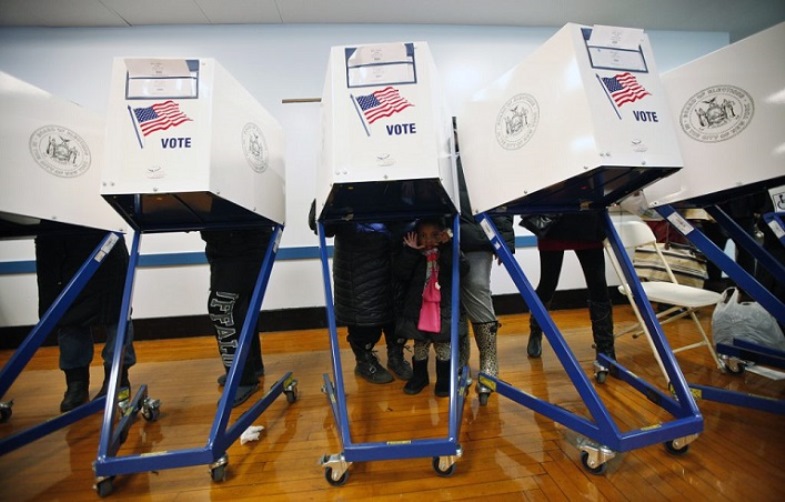Allegations of election hacking in the United States have exposed the vulnerability of modern political systems to outside interference. The reaction to the hacking allegations has also exposed the serious risks that such interference poses to social and political order.
Donald J. Trump’s surprise victory in the United States demonstrates that electoral hacking can be effective in disrupting political systems. The Trump victory has effectively thrown both major political parties in the United States into chaos, and it may lead to dysfunctional government by creating gridlock in Congress.
Nor is the danger just confined to the United States, Sebastien Pietrasanta, the head of security for France’s Socialist Party admitted that he is frightened of cyberattacks in a Politico interview.
Pietrasanta pointed out that the democratic process itself is the weakest link in the political system. The openness that democracy requires leaves it uniquely vulnerable to outside interference.
How electoral hacking works
Election hacking is actually a catch-all phrase that refers a variety of strategies used to undermine the political process. These strategies include:
Direct cyberattacks on political parties and institutions. This can include data theft, malware and ransomware.
Leaking of damaging or embarrassing information. Hillary Clinton’s campaign was fatally weakened by the release of Democratic Party emails exposing questionable behaviour and possible corruption among her staff. More recently President Trump himself has been the victim of a questionable dossier of information “leaked” by his enemies inside the American intelligence community, and promoted by his critic US Senator John McCain (R-Arizona).
Deliberate interference in the political process such as vote fraud and voter suppression.
Attempts to undermine the credibility of the electoral process. An example of this was Russian efforts to hack into American voter registration databases before the election. The idea is to make citizens suspect their leaders are not legitimately elected. Another is to raise questions about electronic voting machines or paper ballots.
Manipulation of the electoral process itself. In the United States this often takes the form of demands for recounts, and allegations of vote fraud and voter and suppression. The idea is to make citizens think the process is rigged against them and in favour of some shadowy elite.
Fake news. Propaganda and smear campaigns disguised as news stories. A popular means of spreading this false websites. Other means include social media, open-sourced platforms such as Wikileaks and the leaking of documents to journalists.
The risk of civil unrest
The biggest risk created by electoral hacking is that of civil unrest. Trump’s victory triggered riots and protests in the United States right after the election.
Rioting; including the burning of a $90,000 limousine outside the White House, accompanied Trump’s inauguration ceremony on the 20th January . The words “We the People” and anarchist symbols were spray painted on the limo before it was torched, The Washington Post reported. The vehicle’s windows were smashed and the driver injured before the arson.

The rioters who attacked the limo also threw rocks at police who responded by throwing flash-bang grenades. A flash-bang grenade is a military weapon developed for the Special Air Services, which can set a building on fire.
Disturbingly the owner of the burned limousine Muhammad Ashraf did not know whether his insurance will cover the mayhem, The Post reported. Donald Trump himself was one of the customers of Ashraf’s limousine service before he launched his presidential run.
It is not clear whether the rioters knew of Ashraf’s relationship with Trump but the attack should concern business owners and insurers. New kinds of coverage might be needed for businesses that operate in capitols or areas near government buildings such as the Houses of Parliament.
The risk of civil disobedience
Another danger is that of civil disobedience which can lead to violence or property destruction. Protesters chained themselves to the doors at Uber’s headquarters after media reported the company’s CEO Travis Kalanick had been pointed to the Strategic and Policy Forum an advisory body to President Trump.
These dangers are magnified by large scale protests such as the Women’s March on Washington that may have attracted 470,000 people to the nation’s capital. Media reports indicate that speakers such as Madonna deliberately tried to incite violence with incendiary language during the march.

There were also shouting matches between protesters and radical Christian street preachers that nearly led to violence during the march, The Christian Post reported.
The riots, the Women’s March and the Uber protest were all triggered by the widespread belief that Trump somehow stole the election through hacking. The belief is reinforced by politicians like US Representative John Lewis (D-Georgia) who has publicly called Trump an illegitimate president.
The Risk of Dysfunctional Government
Beyond civil unrest there is the risk of ineffective or dysfunctional government. A danger in the United States is that some members of Congress such as Lewis will refuse to cooperate with the Trump administration.
This can lead to a US government shut down by preventing Congress from passing a federal budget and appropriating money for government operations. This actually occurred in 2013 and it nearly happened again on the 9th December 2016, Politico reported. The shutdown almost occurred because Democrats objected to a plank in the majority Republicans’ budget proposal.
Now that a President who is widely viewed as illegitimate is in office, such a shutdown is more likely. Some members of Congress may fear that they will be viewed as traitors by voters if they are seen helping Trump. The risks from a shutdown include a suspension of necessary government services and civil disorder.
The Threat is World Wide
The situation in the United States proves that electoral hacking is a grave threat to every nation with a democratic government. Insurers need to monitor the situation because what happened in America might soon be reported in other nations such as France and Germany.
Chancellor Angela Merkel thinks the Russians might target her by interfering in the next German election, Politico reported. One result of such interference might be that the Germans retaliate by hacking the next Russian election.
Electoral hacking is a threat that extends far beyond the political process. Everybody in insurance and risk management needs to be aware of it and prepared for the side effects.
